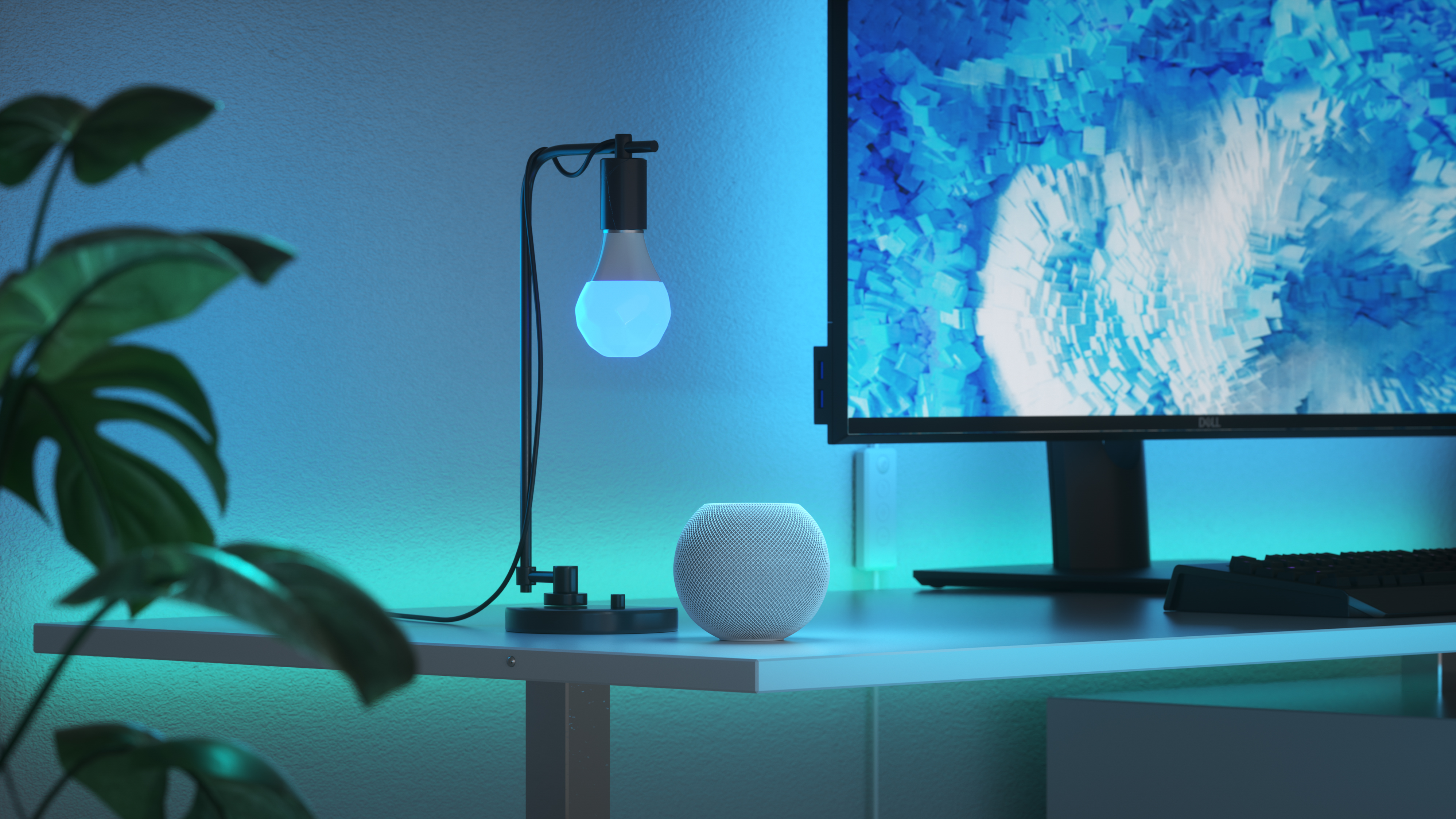Apple bringing Siri to third-party devices is an absolute game changer
Opinion: This upgrade will make a HomeKit-enabled smart home more desirable

Apple unveiled a raft of new HomeKit features alongside the launch of iOS 15 at the company's annual WWDC keynote on June 7; from digital keys stored on your phone for your smart lock to package detection when your home security cameras are connected to your Apple TV through Homekit.
But the biggest, and most important, change from Apple, was making Siri available on third-party devices. It’s a huge move that’s gone totally under the radar, it seems.
From later this year, you’ll be able to say “Hey Siri” to some HomeKit-compatible smart devices and Apple’s voice assistant will be able to understand and action a number of commands from devices that don’t start with a lower-case ‘i’.
Apple revealed the smart thermostat manufacturer, Ecobee, was the first brand it had started working with but highlighted it was open to joining forces with any HomeKit compatible smart home device manufacturer.
- What you need to know about Thread smart home technology
- Find out how video doorbells work
- Do you think Alexa, Google Assistant, and Siri are gimmicks? Here’s why you should think again...
HomeKit vs Alexa - a true fight now
While both Amazon and Google gave third-party manufacturers the ability to build-in Alexa and Google Assistant capabilities respectively, Apple has inexplicably waited until now to follow suit.
We’ve seen Alexa pop-up in Ecobee smart thermostats, Amazon Fire-branded TVs (which are not made by Amazon) and even LG Refrigerators, along with a raft of third-party smart speakers from the likes of Sonos.
Google, on the other hand, has been more selective and focussed on letting TV and speaker brands add Google Assistant to their devices, along with Chromebooks, Android smartphones and smart displays - spreading the technology, but in a more targeted way.
Get daily insight, inspiration and deals in your inbox
Sign up for breaking news, reviews, opinion, top tech deals, and more.
This ‘spreading’ of the smart assistants certainly gives consumers more choice in what smart home devices they purchase - if you’ve already invested in a sound system for your home, you may not love the idea of purchasing an extra smart speaker just so you can use a voice assistant.
(Even if you can pick up an Echo Dot or Google Home Mini for as little as $9.99 / £9.99 / AU$17.99 on Black Friday and Prime Day).
However, you may currently be considering a smart thermostat or other smart home devices, and adding the bonus of a voice assistant, makes it instantly more appealing.
It also makes life easier - no matter where you are in your home, you’re only a few feet away from the convenience of your voice assistant, who can tell you the weather, update you on your calendar appointments, and even just answer those burning questions for you, and Apple has sorely missed having Siri being less prevalent in the smart home.
Unlike Alexa and Google Assistant in third-party devices, you will still need a HomePod or HomePod Mini to use Siri on compatible smart home gadgets, as the requests are relayed through Apple’s servers to ensure your information remains private.
So while this doesn’t make Siri as affordable to use on other devices in the same way as Alexa and Google Assistant, it does mean your data is protected - and that’s a price worth paying.
Hey Siri: Recognize my voice properly
Also during WWDC, Apple announced it will be bringing voice recognition to Siri on HomePod at the same time - another feature that both Alexa and Google Assistant already offer, and one that my household has enjoyed using regularly.
With voice recognition I can get personalized results such as the traffic on my commute or an update on my calendar, and my other half can do the same - rather than one of us missing out on the convenience of a voice assistant.
There is a caveat though - to use voice recognition the other family members must have their own Apple ID and have trained Siri to recognize their voice on another device, like an iPhone or iPad, already.
Once they’ve done this you can invite them to be a member of your smart home group and they’ll get personalized responses too.
So while it won’t be useful for kids or tweens that don’t have their own iPhones, iPads or Apple Watches, other households that feature multiple occupants with Apple devices can certainly benefit.
These upgrades will put Siri shoulder to shoulder with Alexa and Google Assistant when it comes to controlling your smart home...that is, as long as third-party brands take up this new feature and add Siri to their smart devices.
We look forward to seeing what other upgrades Apple will be making to ensure a HomeKit smart home is as fuss-free as possible - we’re not fussed which brands are ‘winning’ in the smart home space, as long as consumers get the chance to have some real choice when it comes to decking out their living space with more futuristic, voice-controlled technology.
- Check out these great smart home deals
Carrie-Ann Skinner was formerly Homes Editor at TechRadar, and has more than two decades of experience in both online and print journalism, with 13 years of that spent covering all-things tech. Carrie specializes in smart home devices such as smart plugs and smart lights, as well as large and small appliances including vacuum cleaners, air fryers, stand mixers, and coffee machines. Carrie is now a copy editor at PWC.
